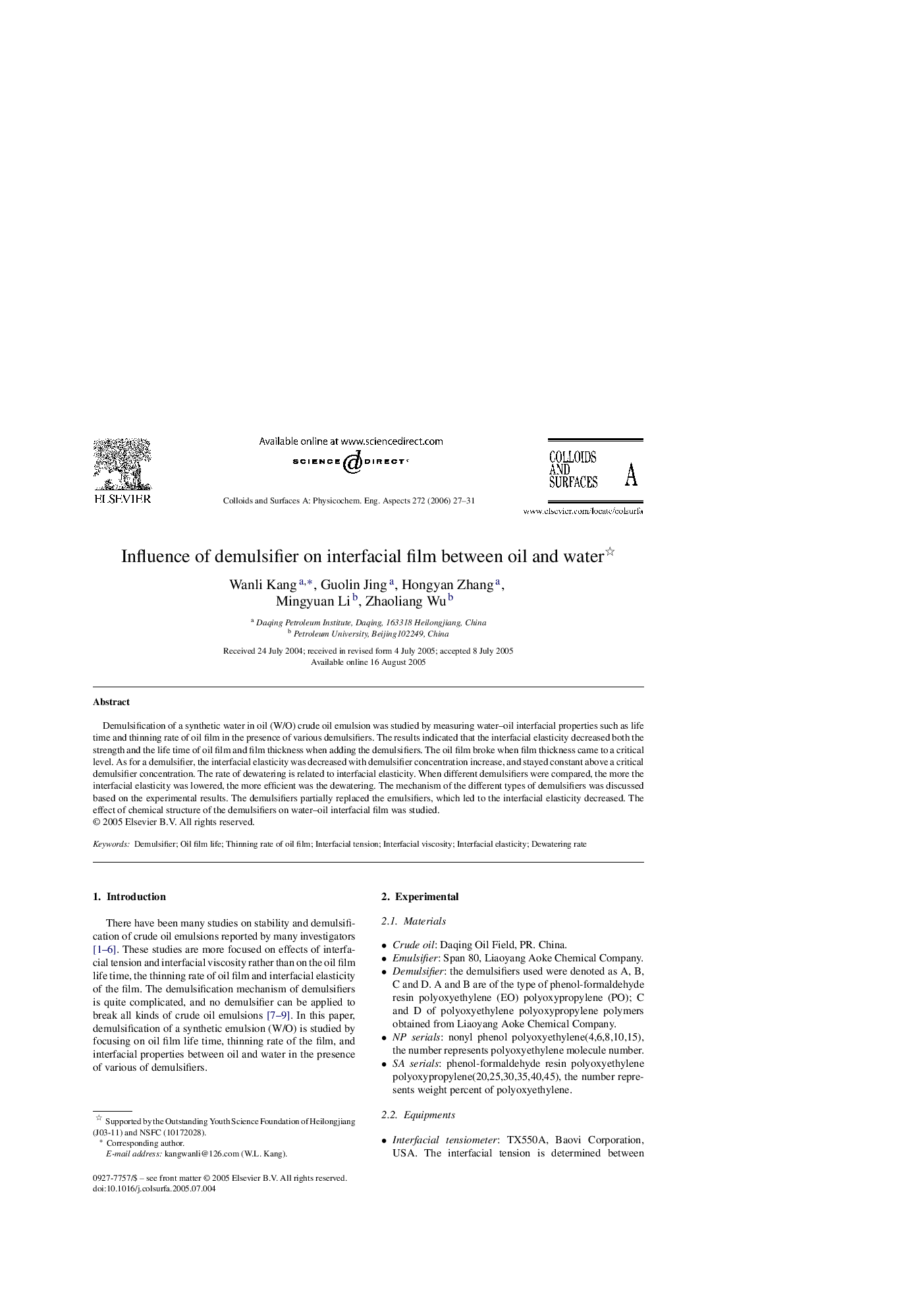| Article ID | Journal | Published Year | Pages | File Type |
|---|---|---|---|---|
| 598704 | Colloids and Surfaces A: Physicochemical and Engineering Aspects | 2006 | 5 Pages |
Demulsification of a synthetic water in oil (W/O) crude oil emulsion was studied by measuring water–oil interfacial properties such as life time and thinning rate of oil film in the presence of various demulsifiers. The results indicated that the interfacial elasticity decreased both the strength and the life time of oil film and film thickness when adding the demulsifiers. The oil film broke when film thickness came to a critical level. As for a demulsifier, the interfacial elasticity was decreased with demulsifier concentration increase, and stayed constant above a critical demulsifier concentration. The rate of dewatering is related to interfacial elasticity. When different demulsifiers were compared, the more the interfacial elasticity was lowered, the more efficient was the dewatering. The mechanism of the different types of demulsifiers was discussed based on the experimental results. The demulsifiers partially replaced the emulsifiers, which led to the interfacial elasticity decreased. The effect of chemical structure of the demulsifiers on water–oil interfacial film was studied.
